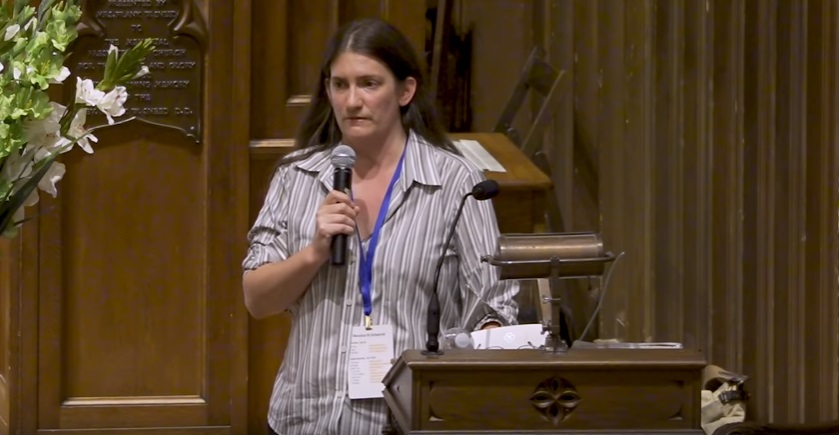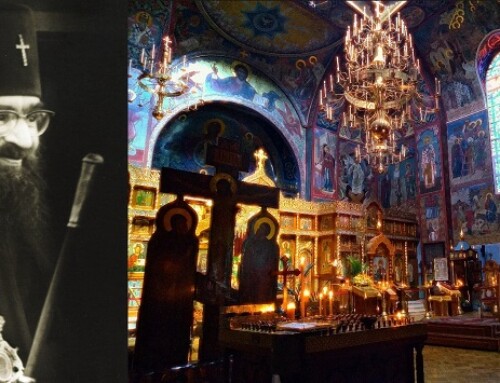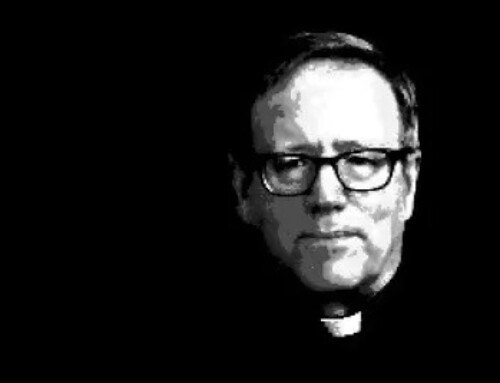Recently, self-professed “gay” Catholic Eve Tushnet addressed the “Revoice” Conference held in St. Louis, Missouri. According to the event’s website, the Revoice Conference was an opportunity for “supporting, encouraging, and empowering gay, lesbian, same-sex-attracted, and other LGBT Christians so they can flourish while observing the historic, Christian doctrine of marriage and sexuality.” Other presentations at the Conference included: “Redeeming Queer Culture: An Adventure,” and “How to Be A Straight Ally.” The presenter at the later presentation, Preston Sprinkle, in his criticism of the “Nashville Statement” wrote: “Personally, I’ve sided with people like Wes Hill, Ron Belgau, Nate Collins, Greg Coles, and many others who passionately believe that marriage is between a man and a woman, but who also feel that identifying as gay is not incompatible with the gospel.” All those mentioned by Sprinkle spoke at the Conference. Besides Tushnet, other presenters included fellow “Spiritual Friendship” theorists the aforementioned Ron Belgau and Wesley Hill. In an article for the “Spiritual Friendship” website titled “Loving Men” author Wesley Hill quoted another “gay” Christian who wrote: “I found myself delighting in certain men in a way that was distinctly gay but also chaste…” Back in 2013, I think Austin Ruse accurately described the common interests present in this group:
They oppose a redefinition of marriage to include anyone else. They are fine, if that is the right word, with living celibate lives. They do not want to stop being gay; they don’t believe they can or even should. They believe God made them gay so they want to be known as gay and they want the Church to accept them on those terms. And they believe being gay is part of God’s plan and vocation for them.
During her address at the Revoice Conference, Tushnet proved correct the earlier description by Ruse. For example, Tushnet argues that what “is very hard for a lot of gay people to understand” is that “God is working in our loves, in and through our longings for same-sex love, intimacy, tenderness, to share our lives with someone of the same-sex.” She claims, “this is actually something in Scripture.”
In the largely heterodox video series “Owning Our Faith,” from the dissident LGBT ministry Out at St. Paul, in which a “married” same-sex couple argued against Church teachings, Tushnet said:
The Church’s teaching, specifically on homosexuality but also on other areas of sexual ethics, was probably my biggest stumbling block in becoming Catholic. It was something I was pretty concerned over. One thing that’s been helpful for me is seeing that Scripture uses both opposite-sex and same-sex love as models or mirrors of the love of God and the human soul…
To prove her contention, Tushnet offers several examples of what she claims are forms of “same-sex love.” They include: Jonathan and David, and Naomi and Ruth. She said: “Jesus’s genealogy includes not one, but two extraordinary pledges of love between people of the same-sex.” Again, the Spiritual Friendship group has a problem with semantics and recognizing the charge inherent in certain words used in their contemporary context; hence, their insistence on self-identifying as: gay, lesbian, queer… But are these relationships actually examples of “same-sex love” or more precisely examples of “fraternal” or “brotherly love?”
Yet, this sort of “queer” revisionism has been employed against a number of Christian historical figures including: Sts. Perpetua and Felicity, Sergius and Bacchus, as well as Mary and Martha.
But her most troubling claim is that the relationship between Christ and the Apostle John is also an example of “same-sex love.” This route of argument is fraught with incredibly ugly connotations because several pro-gay sex advocates and theologians, including the late John Boswell, have used the same assertion in their contention that a homosexual relationship existed between Jesus and John. Tushnet must be aware of this problem because she mentions Boswell several times in her book, “Gay and Catholic: Accepting My Sexuality, Finding Community, Living My Faith,” in which she stated: “I’m in no sense ex-gay. In fact, I seem to become more lesbian with time.” In her address, Tushnet said:
Perhaps the most striking example of same-sex love being used as a way to teach us what love of God is, what discipleship is, John. John in his Gospel, there are two people, who I think, he never refers to by name: Mary who is always the Mother of Jesus and the Disciple whom Jesus loved, who is usually identified with John himself. His relationship with Jesus is usually intimate, both physically, he leans on Jesus’s breast at the Last Supper…
Somewhat true, but through a “gay” lens, the relationship between Christ and John is often viewed as “unusually intimate.”
Historian John Boswell implied a “special affection” between Christ and John. He continued: “Jerome argued that Jesus loved John the most because he was youthful and virginal – doubtless intending to remove any suspicions of sexuality, but not entirely succeeding, given that younger, unmarried men are expected to provoke desire among older men in the premodern population of the Mediterranean.”
In his controversial book, “Taking a Chance on God: Liberating Theology for Gays, Lesbians, and Their Lovers, Families, and Friends,” John J. McNeill, S.J., wrote:
…John, the one person among Jesus’ disciples with whom we as gay people can frequently identity. If he was not actually gay himself, he is certainly depicted as having had a gay sensitivity. He always refers to himself as “the disciple to whom Jesus loved.”
Later in his book “Freedom, Glorious Freedom: The Spiritual Journey to the Fullness of Life for Gays, Lesbians, and Everybody Else,” McNeill added:
Any one of you who have a gay sensibility will be keenly aware of the special nature of the relationship of love that reunites Jesus and John.
In 2005, the first openly “gay” Anglican Bishop, Gene Robinson, clearly intimated at a sexual relationship between Jesus and the Apostle John: “…in this day of traditional family values, this man that we follow was single, as far as we know, travelled with a bunch of men, had a disciple who was known as ‘the one whom Jesus loved.’”
While I don’t believe that Tushnet intended to imply anything beyond “brotherly love” between Christ and John, yet, her use of the term “same-sex love” has the unfortunate effect of doing just that.
Following her examination of “same-sex love” in Scripture, she said:
One of the biggest things that convinces gay people that there is no future for them in the Church…is specifically in the area that, their longings for love, intimacy, and connection with someone of the same-sex. They see no plan for that in God’s plan, which is sort of shocking…there it is, it is in Scripture. The desires that we have to love and be with someone of the same-sex are in fact given shape and form…
The problem I see with this recommendation to express “love” and “intimacy” with someone of the same-sex, specifically with someone who is also attracted to the same-sex, that in men – this experiment is loaded with dangerous consequences. For example, Camille Paglia once expertly observed: “Gay men may seek sex without emotion; lesbians often end up in emotion without sex.” Therefore, weepy hand-holding could work for some women, its far more precarious with two men.
While Tushnet’s suggestion could possibly have some useful applications with regards to women with same-sex attraction, because of the emotional and sexual differences between men and women, its highly problematic when applied to men. While Tushnet is correct, in terms that the avoidance of same-sex friendships can often lead to issues of loneliness and depression, equally dangerous is the false mythologizing and romanticization of those same-sex friendships. In this universe, you end-up with the same-sex “unions” theorized by John Boswell – without the sexual component. My recommendation, especially to men with same-sex attraction, is that they foster masculine Christian friendships with married heterosexual family men.





